LUMBERMENOnline.com’s Latest Industry News & Articles
Submit your company’s latest news or articleCentral City, KY, August 14, 2015—Brewco Incorporated announces the acquisition of the Big Jake Scragg assets from Timberland Machinery Incorporated, located in West Plains, MO.
Mike Goldston, president of Brewco commented, “We are excited about this great opportunity to acquire Timberland Machinery’s Big Jake Scragg. Timberland produces the best scragg system on the market, and this adds a solid product line to our other outstanding equipment that we manufacture. With this acquisition we can now offer a scragg system that will complement many of the market segments we service including producers of grade lumber, crossties, and pallet cut stock.” Mr. Goldston added, “We are always striving to adapt to industry changes, and with the log supply getting more expensive, we identified the need to offer our customers the most efficient way to break down a log and process the wood. And the Big Jake Scragg System does just that.” In addition to the scragg, Brewco is also acquiring all automation and controls as well as the Auto Edger, Notcher, Trim Saws, and Rotary Kicker.
Timberland’s founder and owner, Dennis Franks, is looking forward to retiring and traveling with his wife. Mr. Franks said, “I’ve worked hard for many years developing and manufacturing scragg systems. The Big Jake Scragg System, which is named after my grandson, is near and dear to my heart and I wanted to ensure that my legacy was passed on to a company with a solid reputation, and Brewco is that company.” Mr. Franks added, “Several companies have attempted to copy my Big Jake, but the sophisticated and proprietary automation controls, along with the complex hydraulic system have allowed me to stay several steps ahead of the competition. Brewco has a brilliant staff that includes a Mechanical Engineer, a PLC/Automation Engineer, and a Hydraulic Engineer. This was a driving factor in my decision to sell the Big Jake to Brewco.”
Timberland Machinery, Inc. will continue to operate in West Plains, MO. However, the company will only manufacture a deduster and a stacker.
About Brewco Incorporated: Headquartered in Central City, KY, Brewco is a leading supplier of sawmill and wood processing equipment. Founded in 1991, Brewco was purchased in October of 2010 by Mike Goldston, Bill Hendrix, and David Piper. Best known for the B-1600 Grade Run-Around System, Brewco also manufactures stave mill equipment, crosstie processing equipment, and pallet mill equipment. Since the 2010 purchase, the company has grown from 22 employees to 47 employees.
October 8-9, 2015
North Carolina State University
Raleigh, North Carolina
Dehumidification drying can produce high quality kiln dried lumber with a small capital investment. This short course will provide practical knowledge about using dehumidification to produce kiln dried lumber, and the scientific background on related wood properties. It will have value for those kiln operators beginning to operate a dehumidification kiln and those considering the purchase of a dehumidification kiln. Instruction, by university faculty, will be both in the classroom and through hands-on lab exercises using our 1000 BF laboratory dry kiln equipped with a commercial lumber dehumidification system. For more details: http://www.ncsu-feop.org/biomaterials/
Registration Deadline: Friday, October 2, 2015 (5PM EDST), limit 25 attendees.
Phil Mitchell
Associate Professor and Wood Products Extension Specialist
Wood Products Extension
Dept. of Forest Biomaterials
North Carolina State University
1022 Biltmore Hall
Campus Box 8003
Raleigh, NC 27695-8003
WASHINGTON – American Forest & Paper Association (AF&PA) President and CEO Donna Harman and American Wood Council (AWC) President and CEO Robert Glowinski have issued the following statements expressing concern about the U.S. Environmental Protection Agency’s (EPA) final Clean Power Plan and the proposed Federal Plan released Monday.
Donna Harman, President and CEO, AF&PA:
“While the final Clean Power Plan and proposed Federal Plan reaffirm the carbon benefits of bioenergy and forest products manufacturing residuals, EPA missed an important opportunity to clarify how biomass energy can be practically used by states to meet emission reduction goals. These residuals would have released CO2 to the atmosphere if they had not been used for energy, so the industry is simply harnessing their energy value and utilizing the full carbon cycle of biomass. EPA’s lack of guidance and direction creates confusion and uncertainty for states and business investment, which hinders the competitiveness of America’s paper and wood products industry.”
Robert Glowinski, President and CEO, AWC:
“EPA’s Clean Power Plan imposes significant limits on how states can use biomass energy to meet their emission reduction goals. Under this plan, complete carbon neutrality depends on the absence of a current alternative market for the forest products manufacturing residuals; but it’s unclear how a state can possibly make this determination. These barriers to the use of biomass energy discourage new investment to build or upgrade wood products facilities that could produce carbon benefits. Public policies should not construct artificial mandates that reduce our industry’s ability to efficiently use manufacturing residuals for biomass energy.”
# # #
About AF&PA
The American Forest & Paper Association (AF&PA) serves to advance a sustainable U.S. pulp, paper, packaging, and wood products manufacturing industry through fact-based public policy and marketplace advocacy. AF&PA member companies make products essential for everyday life from renewable and recyclable resources and are committed to continuous improvement through the industry’s sustainability initiative - Better Practices, Better Planet 2020.The forest products industry accounts for approximately 4 percent of the total U.S. manufacturing GDP, manufactures over $200 billion in products annually, and employs approximately 900,000 men and women. The industry meets a payroll of approximately $50 billion annually and is among the top 10 manufacturing sector employers in 47 states. Visit AF&PA online at afandpa.org or follow us on Twitter @ForestandPaper.
About AWC
The American Wood Council (AWC) is the voice of North American wood products manufacturing, representing over 75 percent of an industry that provides approximately 400,000 men and women with family-wage jobs. AWC members make products that are essential to everyday life from a renewable resource that absorbs and sequesters carbon. Staff experts develop state-of-the-art engineering data, technology, and standards for wood products to assure their safe and efficient design, as well as provide information on wood design, green building, and environmental regulations. AWC also advocates for balanced government policies that affect wood products.
www.awc.org | @woodcouncil
WASHINGTON – American Wood Council (AWC) President and CEO Robert Glowinski and American Forest & Paper Association (AF&PA) President and CEO Donna Harman have issued the following statements expressing concern about the U.S. Environmental Protection Agency’s (EPA) final Clean Power Plan released today.
Robert Glowinski, President and CEO, AWC:
“The forest products industry operates in a highly competitive market and increases in our energy costs can significantly harm our competitiveness. Moreover, EPA’s biogenic accounting framework took steps to recognize the unique energy benefits of using biomass residuals, and EPA needs to fully recognize that carbon neutrality across their regulations. We will carefully consider all legal and legislative options to address our concerns.”
Donna Harman, President and CEO, AF&PA:
“We are reviewing both the final Clean Power Plan and the proposed Federal Implementation Plan to ensure that biomass energy produced from forest products manufacturing residuals is recognized as a carbon benefit to the atmosphere. We’re concerned that purchased electricity costs for manufacturers will increase as a result of this EPA action and the nation’s grid reliability will be further jeopardized. We believe that the final rule is an unprecedented federal intrusion on local energy mix decisions previously in the hands of the states and consumers.”
# # #
About AWC
The American Wood Council (AWC) is the voice of North American wood products manufacturing, representing over 75 percent of an industry that provides approximately 400,000 men and women with family-wage jobs. AWC members make products that are essential to everyday life from a renewable resource that absorbs and sequesters carbon. Staff experts develop state-of-the-art engineering data, technology, and standards for wood products to assure their safe and efficient design, as well as provide information on wood design, green building, and environmental regulations. AWC also advocates for balanced government policies that affect wood products.
www.awc.org | @woodcouncil
About AF&PA
The American Forest & Paper Association (AF&PA) serves to advance a sustainable U.S. pulp, paper, packaging, and wood products manufacturing industry through fact-based public policy and marketplace advocacy. AF&PA member companies make products essential for everyday life from renewable and recyclable resources and are committed to continuous improvement through the industry’s sustainability initiative - Better Practices, Better Planet 2020.The forest products industry accounts for approximately 4 percent of the total U.S. manufacturing GDP, manufactures over $200 billion in products annually, and employs approximately 900,000 men and women. The industry meets a payroll of approximately $50 billion annually and is among the top 10 manufacturing sector employers in 47 states. Visit AF&PA online at afandpa.org or follow us on Twitter @ForestandPaper.
Don’t tie up your prime mover for just one function. Rayco is introducing a new concept in Crawler Trucks with the launch of the RCT110S. This innovative platform is designed to utilize the 100hp, steel tracked Crawler Truck as a tow vehicle and carry payloads on a gooseneck trailer. The trailer can be fully customized to meet specific job requirements or to perform specialized tasks, allowing the RCT110S Crawler Truck to function as the prime mover for any number of different trailers. This concept lowers costs by keeping specialized equipment confined only to the trailer and allowing the RCT110S Crawler Truck to mate up to multiple trailers. The gooseneck trailer design allows for payloads up to 20,000-pounds and the trailer length can be configured to the user’s requirements.
The RCT110S is powered by a reliable Kubota diesel engine and features a heavy-duty steel track undercarriage to maximize traction and durability. An enclosed cab with heat, A/C, and suspension seat keep the operator safe and comfortable. Joystick propel and 2-speed travel makes operation simple while the gooseneck trailer design provides the tightest possible turning radius. The RCT110S can also be configured with a 2-5/16-inch ball coupler.
• Powered by 99.2hp Kubota diesel
• Tows 20,000-pound payload
• Heavy duty steel track undercarriage
• Gooseneck trailer design for ultimate maneuverability
• 2-5/16-inch Ball Coupler Option
• Enclosed cab with heat, A/C, and suspension seat
WASHINGTON – American Wood Council (AWC) President and CEO Robert Glowinski has issued the following statement regarding the letter ?154 members of the U.S. House of Representatives sent to the U.S. Department of Agriculture, Department of Energy and Environmental Protection Agency urging the recognition of the carbon neutrality of biomass energy.
The letter can be found here: http://awc.org/docs/default-source/letters/house-letter-on-carbon-neutrality-of-forest-biomass.pdf
“The carbon life cycle of wood products is well known and recognized. Our industry produces almost 80 percent of its own energy through the use of biomass residuals, displacing the need for fossil fuel use. These congressmen and women have now joined senators and scientists in supporting the use of biomass energy from manufacturing residuals as being fully sustainable. It is important for both our industry and national energy policy that the federal government clearly recognizes the carbon neutrality of biomass energy derived from sustainable forestry and our industry’s manufacturing residuals.
“We thank all of the letter’s supporters and, in particular, Representatives Ribble, Bishop, Poliquin, Schrader, Harper and Graham for leading the effort.”
JACKSONVILLE, ILLINOIS (June 1, 2015) – PRS Group, Inc., based in Illinois, and Spain based CAPE have entered into a partnership that will bring new technology and machinery to the pallet industries in North America and Europe, as well as other key areas around the globe. PRS Group, a widely known US manufacturer of pallet repair equipment, and CAPE, a leading European pallet nailing machinery manufacturer, are now representing each other’s complimentary product lines in their designated markets. The pair will also be collaborating on future projects to offer a complete line of both pallet manufacturing and recycling equipment worldwide.
Starting in June, PRS Group will begin offering for the first time in the US, the CAPE nailing machine, which has already developed a strong reputation in Europe for its efficiency, flexibility and scalability at a very competitive cost. The initial focus will be the CAPE Mach 2, an automatic nailing line with quick change over for the production of decks, skids and 2-way reversible pallets. It is designed to produce stringer pallets and can be upgraded easily by adding a module to produce block pallets. The Mach 2 is known for its quick changeover between designs and can produce around 2,500 pallets in an eight-hour shift.
Jeff Williams, president of PRS Group stated, “The Mach series features quick 30 minute or less changeovers with touchscreen controls; no wrenches or manual adjustments are required. The unique thing about the Mach line is that the systems are modular. This allows the production line to grow with the company’s needs, without requiring the purchase of a brand new system. Through increased output and lowered costs, the machine can pay for itself within the first year of use.”
PRS Group will stock necessary parts and have a specially trained technician available for service in the U.S. If you want to see the Mach 2 in action, PRS Group will have a CAPE nailing line running in its Illinois showroom later this summer.
The two companies will remain independently operated, but the collaborative product offering agreement between the two will enhance each one’s ability to better serve their respective customers and to continue to provide the exceptional quality and service they have built their reputations on over the years. The partnership truly means a turnkey offering of solutions for the worldwide pallet industry.
The new Titan Trommel Screen from West Salem Machinery (WSM) is an ultra-heavy duty rotary
drum screen specifically designed and manufactured for severe duty screening applications requiring high throughput and reliable long term operation. Available with drum sizes of 6 ft., 8 ft., and 10 ft. diameter with lengths from 25 ft. to 63 ft. long, the Titan Trommel is a “revolution” in trommel design and construction – with design features and build quality that deliver unsurpassed performance and reliable long term operation.
What makes the WSM Titan Trommel different? Precision manufactured trunnion rings with heavy
duty raised steel rings that are machined and include integrated lifter attachments – providing superior
drum integrity and concentricity; massive steel support frame with machined mounting pads and laser-
aligned trunnion wheel mounts – allowing long drum lengths with consistent distribution of loading;
modular and interchangeable dual trunnion wheel mounts with self-adjusting pivot point – to handle shock loading and allow for easy access and maintenance; simple modular cleaning brushes with external adjustment – for improved screening efficiency; and modular screen design for use of wire mesh or perforated plate screens – allowing multiple screening zones and quick screen changes.
The list goes on – the WSM Titan Trommel is truly a “revolution” in trommel design and construction and we invite you to learn more at www.westsalem.com, contact WSM directly at 800 722 3530, or by email to [email protected] and talk to one of our application specialist about your specific screening needs.
WASHINGTON – American Wood Council (AWC) President and CEO Robert Glowinski has issued the following statement regarding the letter 46 senators sent to the U.S. Department of Agriculture, Department of Energy and Environmental Protection Agency urging the agencies to recognize the carbon neutrality of biomass energy.
The letter can be found here: http://www.awc.org/pdf/environmentalreg/BiomassLetter-EPA-USDA-DOE-150630.pdf
“These senators have called for clear policies recognizing the carbon neutrality of biomass energy derived from sustainable forestry. It’s crucial for agencies to be consistent on biomass energy so their policies are workable in practice.
“AWC member companies generate almost 80 percent of the energy they use from renewable biomass, most in the form of residuals from manufacturing and operations. We thank all of the letter’s supporters and, in particular, Senators Collins and Merkley for leading the effort.”
# # #
The American Wood Council (AWC) is the voice of North American wood products manufacturing, representing over 75 percent of an industry that provides approximately 400,000 men and women with family-wage jobs. AWC members make products that are essential to everyday life from a renewable resource that absorbs and sequesters carbon. Staff experts develop state-of-the-art engineering data, technology, and standards for wood products to assure their safe and efficient design, as well as provide information on wood design, green building, and environmental regulations. AWC also advocates for balanced government policies that affect wood products.
www.awc.org | @woodcouncil
In my humble opinion anytime the government says, “I’m here to help” you should be concerned. As a former sawmiller and logger, after reading the entire program, I do not believe this is a good program for the hardwood industry and it will not accomplish its stated goals. The program, like every government program, has page after page of confusing regulations, makes unreasonable demands upon all hardwood producers, plus the exemptions and “opt out” options are full of regulatory requirements and fees that are nothing more than a hidden tax.
I encourage all hardwood producers, regardless of your side of this debate, to comment on the Federal Register website and visit www.nohardwoodcheckoff.com for more information. Don’t wait, the comment period closes on July 9th.
Below are some parts of the “new order” that are worse than the original that I recently received from a local hardwood producer from NHLA.
Brady Carr
Publisher
LUMBERMEN’S Equipment Digest
The new order is vastly more complicated than previous because it provides so many exemptions from qualified sales, e.g.
For purposes of this Order, hardwood lumber does not include industrial products which remain in board or block form such as ties, cants, crane mat material, and pallet stock or products which are transformed from boards or blocks of lumber into other products such as furniture, tight cooperage, cabinetry, and constructed pallets
But as the Federal Register also says: exempt manufacturers would still be required to keep records. By providing various other exemptions the new proposals further complicates the $2 million exemption. Now producers near that threshold will have to keep track of sales by category and customer on a separate set of books that would be submitted to the Hardwood Checkoff Board to determine the amount of assessment that company would pay, or whether it would be exempt with revenues under $2 million. The Checkoff set of books would have nothing to do with annual profits, losses or taxes – it would just be another regulatory burden and accounting exercise that cost companies money.
Because of this extra recordkeeping burden which will be particularly cumbersome and costly for small business – they should be granted a vote in the initial referendum with or without having to pay assessments under the program. This equitable given a company may one year have $2 million in revenues from qualified products, and the very next year may not.
The new order exempts industrials, which is 60 percent of hardwood utilization. That is on top of exempting all companies under $2 million in revenue from voting or participating in the check-off. That is more than half of all hardwood lumber manufacturers. With 60% percent of the product volume and 50% of the producer based exempted, how is the check-off to benefit the industry?
USDA does not explain why it dropped industrials from the checkoff, and could not decide on whether to keep plywood – an obvious competing product to hardwood lumber. This is an obvious failure of AMS to provide a balanced analysis and assessment of the industry and demonstrates AMS lacks the insight to proceed with this checkoff plan.
By exempting many products, the Checkoff will promote certain hardwood products over others. This could create an imbalance in the timber supply and negatively impact those exempted. This does not benefit the industry overall.
While the referendum issue is addressed by making the voting threshold a majority of both companies and a majority of volume, the referendum process still exempts more the half the industry and is thus still skewed toward large companies. According to the USDA in the Federal Register, those companies with less than $2 million in annual sales comprise 52 percent of the industry. How can an industry impose a checkoff exempting more than half that industry?
This proposed checkoff is so very different than the original proposal (exports included versus excluded in the original, so many products excluded, that this proposal should be sent back to the industry to consider before moving on as an AMS imposed plan.
The checkoff excludes brokered sales. All manufactures could engage brokers and avoid all assessments. That is not the intent of a promotion and research order.
Comments on the "revised" Hardwood Check-Off are accepted until July 9. NHLA encourages everyone to share their opinions on this matter. Comments can be submitted online at: http://www.regulations.gov.
Hutto Wood Products, an industry leading shaving mill manufacturer, releases their HU448-10 Wood Shaver. The mill features (4) 10 knife heads, (4) 50 horsepower motors along with one 30 horsepower motor that comes fully wired and turnkey ready. While the HU448-10 comes standard and ready, selecting a stationary or movable box (6', 8' or 9') will help fit your needs. More standard attributes include the 24' x 30" conveyor and a 100 gallon reservoir allows the mill to boast 40-60 yards per hour of production. When asked, "what are customers going to like most about this mill?" Patrick, owner of Hutto Wood Products answered quickly, "value and price."
To find out more about the HU448-10 and other equipment from Hutto Wood Products, call 803-317-3129 or visit www.HWPshavers.com.
The Occupational Safety and Health Administration (OSHA) has issued more realistic guidance to field inspectors looking at accumulations of wood dust. The new guidance provides explicit instruction on how to address dusts, such as wood, with bulk densities of less than 75 lb/ft3.
OSHA also acknowledges in the guidance that "very low bulk density materials…may not create a deflagration hazard even at an accumulation level of ¼ inch…" or more, depending on the bulk density and other attributes of the dust.
AWC is pleased that OSHA has decided to consider the true bulk density of a dust in order to assess safe limits for accumulation. For comparison, OSHA's web-based reference provides a bulk density for wood shavings as 8 lb/ft3, with a maximum of 16 lb/ft3, or approximately one-ninth of what they had been using for wood.
Going forward, instead of relying on a 1/32 inch maximum accumulation criterion, OSHA inspectors are now being asked to calculate a maximum safe accumulation layer, specifically taking into account bulk density for the particular material. In situations involving very low bulk density dusts, inspectors can now also send dust samples collected to a laboratory for a density determination where the material is very light; the layer thickness is greater than ¼ inch and not more than one inch; and, the accumulation extends over 5 percent of the floor area of a room or a building or 1000 ft2, whichever is less.
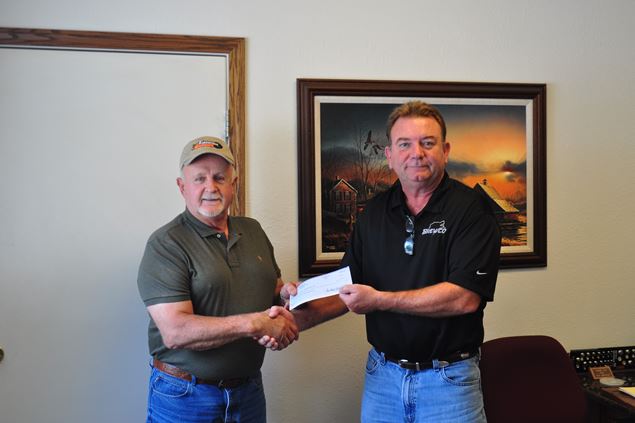
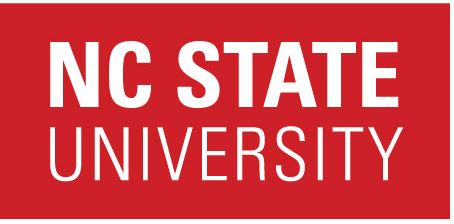



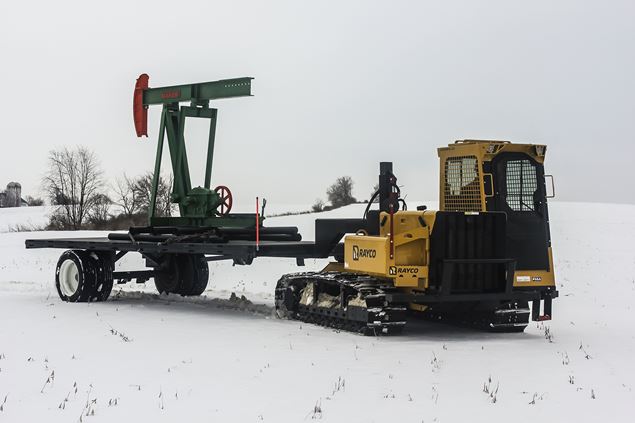

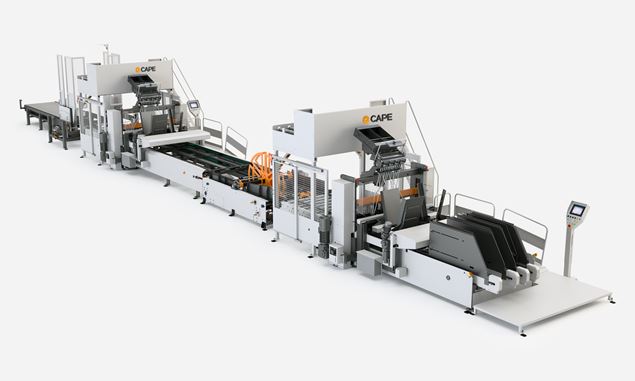



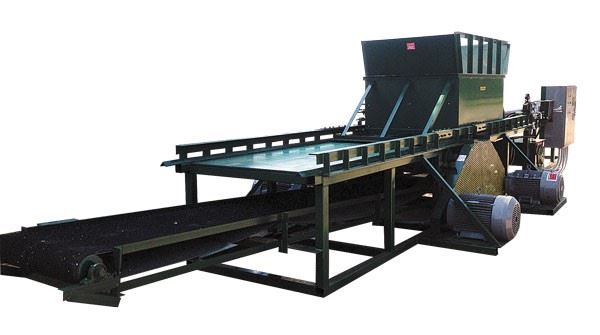




.gif)


